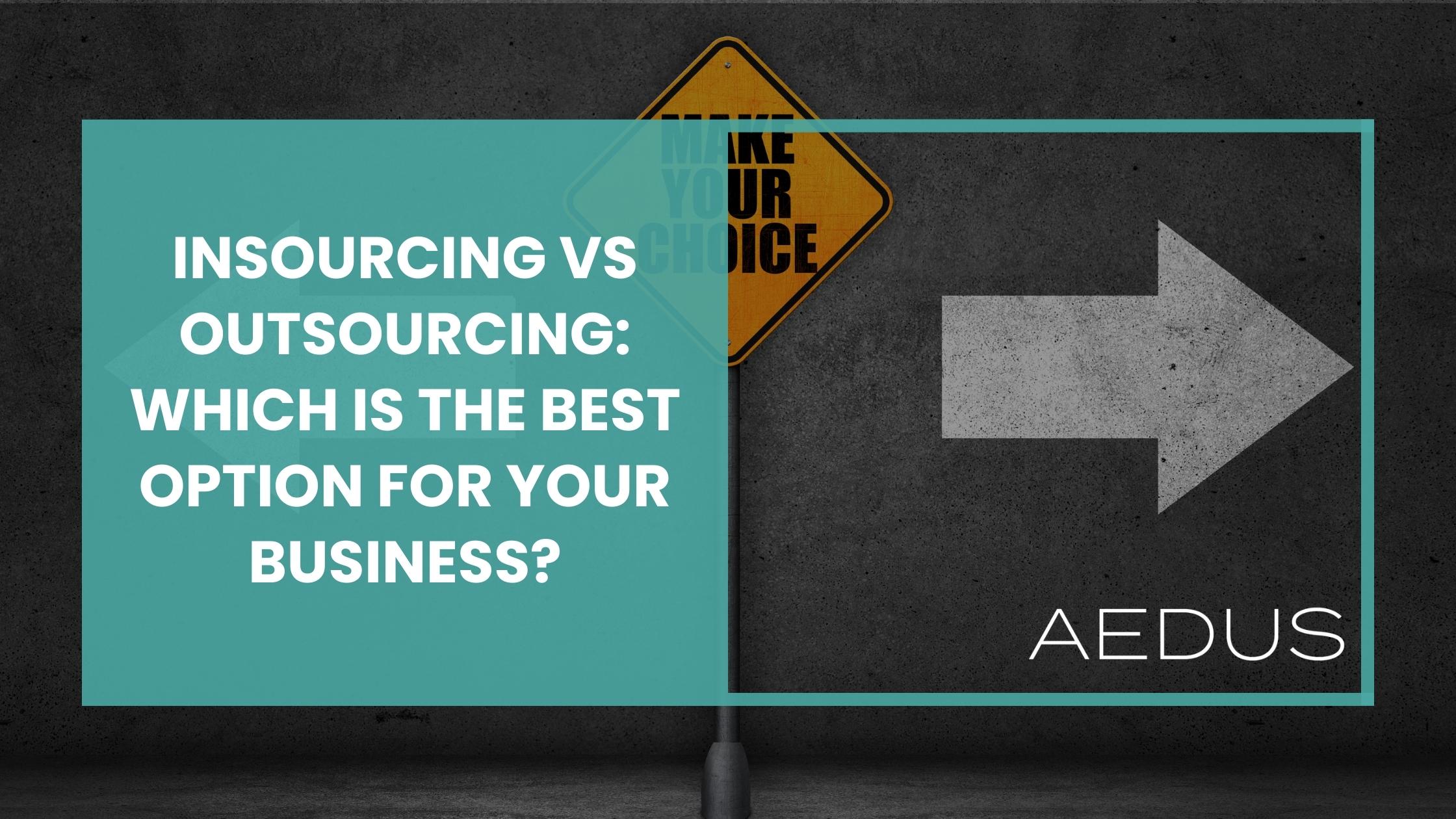Discover the pros and cons of insourcing and outsourcing marketing strategies to determine the best option for your business.
Understanding Insourcing Marketing Strategies
Insourcing marketing refers to the practice of conducting marketing activities within the organisation instead of outsourcing them to external agencies or professionals. This approach allows businesses to have full control over their marketing efforts and ensures that the marketing team is closely aligned with the company's goals and objectives.
One of the key advantages of insourcing marketing is the deep understanding of the business that the internal marketing team possesses. They have first-hand knowledge of the company's products or services, target audience, and brand identity. This knowledge helps them to create marketing campaigns that are tailored specifically to the needs and preferences of the target market.
Insourcing marketing also allows for better communication and collaboration between different departments within the organization. The marketing team can work closely with the sales, product development, and customer service teams to gather insights and align their strategies. This collaboration can lead to more effective marketing campaigns and a seamless customer experience.
However, insourcing marketing does have its disadvantages. It requires businesses to invest in building a competent and skilled marketing team, which can be time-consuming and costly. Additionally, the internal team may lack the specialised expertise or resources that an external marketing agency can offer. This can limit the ability to implement certain marketing strategies or technologies.
Overall, insourcing marketing can be a suitable option for businesses that value control, collaboration, and a deep understanding of their brand. It allows for a more integrated marketing approach and fosters a sense of ownership among the internal team.
Advantages and Disadvantages of Insourcing Marketing
There are several advantages of insourcing marketing that businesses should consider. Firstly, the advantages:
- Insourcing provides greater control over the marketing activities. The internal marketing team can align their strategies with the overall business goals and make real-time adjustments as needed. This level of control allows for more flexibility and agility in responding to market trends or changes in customer preferences.
- Insourcing marketing also enables businesses to build a strong internal marketing team with in-depth knowledge of the company. This team can develop a deep understanding of the target audience, market dynamics, and competition. They can leverage this knowledge to create targeted marketing campaigns that resonate with the audience and drive results.
- Another advantage of insourcing marketing is cost control. By having an internal team, businesses can avoid the costs associated with hiring external agencies or professionals. They can also optimize their marketing budget by allocating resources based on the specific needs and priorities of the business.
However, there are some disadvantages of Insourcing to consider:
- Insourcing marketing requires businesses to invest in recruiting, training, and retaining skilled marketing professionals.
- The process of finding the right fit for your internal marketing can be a time-consuming process, on top of this you will need to allow time to embed that team member in the company and train them on the way your business operates. This can be especially true of more junior marketers who have not have had much exposure to Professional Services or Senior Directors.
- Recruitment and employment can be some of the most expensive costs a business has. Depending on the size of a business, it can be difficult to resource a marketing department that meets your needs, whilst being a good return on Investment.
- An internal team may lack the specialised expertise or resources that external agencies can provide. Marketeers within SME on the whole need to be generalists by nature, with many plates to spin this can put pressure on an internal team's ability to implement certain marketing strategies or technologies.
In summary, insourcing marketing offers greater control, in-depth knowledge of the business, and cost control. However, it requires investment in building a competent team and may have limitations in terms of expertise and resources.
Exploring Outsourcing Marketing Strategies
Outsourcing marketing involves hiring external agencies or professionals to handle various marketing activities on behalf of the business. This approach allows businesses to tap into the expertise and resources of specialised marketing professionals without having to build an internal team.
One of the key benefits of outsourcing marketing is access to a wide range of expertise. Marketing agencies often have a team of professionals with diverse skill sets, including market research, content creation, digital marketing, and analytics. This expertise can bring fresh ideas and perspectives to the table, helping businesses to stay competitive in the ever-evolving market.
Outsourcing marketing also provides businesses with the flexibility to scale their marketing efforts based on their needs. They can easily adjust the level of support or services provided by the agency as the business grows or changes. This scalability is particularly beneficial for small or medium-sized businesses that may not have the resources to maintain a full in-house marketing team.
However, outsourcing marketing also has its drawbacks. Businesses may have less control over marketing activities and strategies, as they rely on the expertise of the external agency. This can create challenges in aligning the marketing efforts with the overall business goals and maintaining consistency in brand messaging.
Another disadvantage of outsourcing marketing is the potential for higher costs. Hiring external agencies or professionals can be expensive, especially for businesses with limited budgets. It is important for businesses to carefully evaluate the costs and benefits of outsourcing marketing to ensure it aligns with their financial capabilities and long-term goals.
In conclusion, outsourcing marketing offers access to specialized expertise, scalability, and flexibility. However, it may involve less control over marketing activities and higher costs.
Benefits and Drawbacks of Outsourcing Marketing
There are several benefits of outsourcing marketing that businesses should consider.
- Outsourcing can provide access to specialised expertise and resources. External marketing agencies often have a team of professionals with diverse skill sets. This expertise can bring fresh ideas and perspectives to the table, helping businesses to stay competitive and innovative.
- Outsourcing marketing also allows businesses to focus on their core competencies. By entrusting marketing activities to external agencies, businesses can allocate more time and resources to other critical functions, such as deal-related activities or client service. This can lead to improved efficiency and effectiveness in overall business operations.
- Outsourcing marketing has the potential for cost savings. Hiring external agencies or professionals can be more cost-effective than building and maintaining an internal marketing team. Businesses can avoid the costs associated with recruitment, training, salaries, benefits, and overhead expenses. They can also benefit from the agency's economies of scale and purchasing power.
However, there are some drawbacks to consider:
- Outsourcing marketing may involve less control over the marketing activities and strategies. Businesses have to rely on the expertise and decisions of the external agency, which may not always align perfectly with the business goals or brand identity.
- Outsourcing marketing can create challenges in maintaining consistency in brand messaging. As multiple agencies or professionals may be involved, ensuring a unified brand voice and message can be more challenging compared to having an internal team.
- Outsourcing marketing can be very project-led. With the majority of agencies looking to fulfil a service, they can lack the involvement in a business to see "the whole picture" and drive business.
In summary, outsourcing marketing offers access to specialized expertise, allows businesses to focus on core competencies, and can lead to cost savings. However, it may involve less control over marketing activities and challenges in maintaining brand consistency.
Choosing the Right Marketing Strategy for Your Business
When it comes to choosing the right marketing strategy for your business, there is no one-size-fits-all approach. The decision between insourcing and outsourcing marketing should be based on several factors, including the goals and objectives of your business, the available resources, and the specific needs of your target audience.
If your business values control, collaboration, and in-depth knowledge of your brand, insourcing marketing may be the better option. It allows for a more integrated marketing approach and fosters a sense of ownership among the internal team. However, it requires investment in building a competent team and may have limitations in terms of expertise and resources.
On the other hand, if your business is looking for access to specialised expertise, scalability, and flexibility, outsourcing marketing may be the preferred choice. It provides businesses with the opportunity to tap into the knowledge and resources of external agencies or professionals. However, it may involve less control over marketing activities and higher costs and progress with campaign completion rather than business success.
Ultimately, the decision should be based on a careful evaluation of your business needs, capabilities, and long-term goals. It may also be beneficial to consult with marketing professionals or seek advice from industry experts to make an informed decision.
In conclusion, choosing the right marketing strategy requires a thorough analysis of your business and its unique requirements. Both insourcing and outsourcing marketing have their advantages and disadvantages, and the best option for your business depends on a variety of factors.



.jpg)
.jpeg)